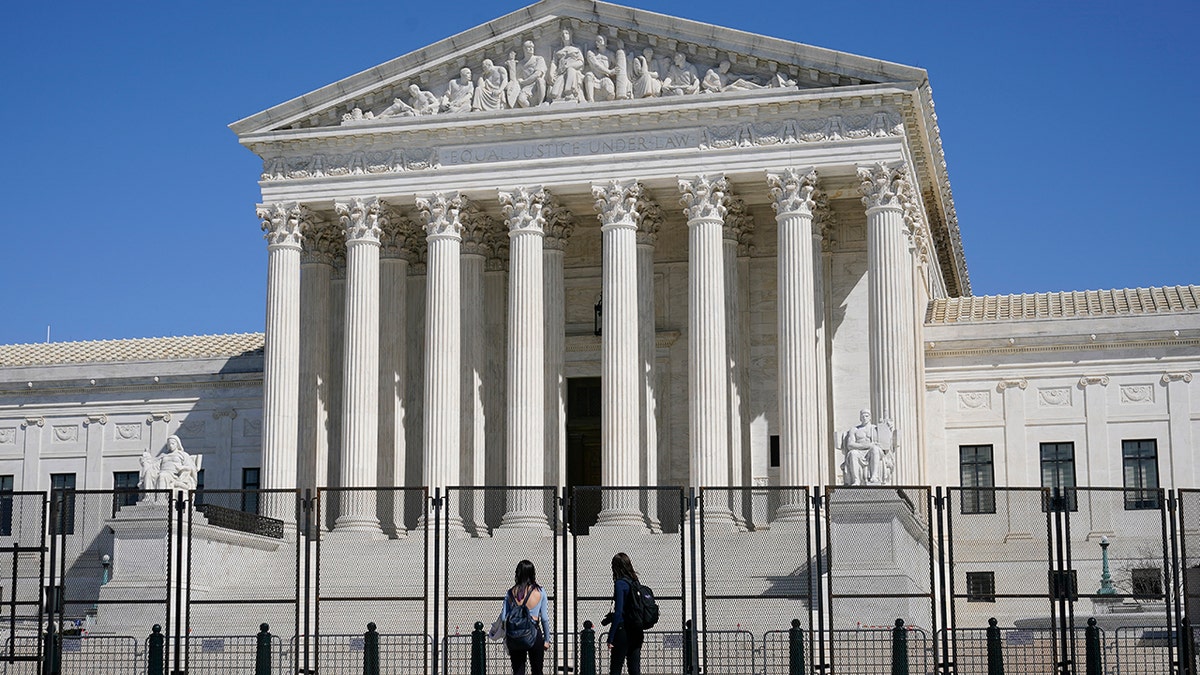Justice Antonin Scalia's son explains impact his father had on Amy Coney Barrett
Christopher Scalia, son of the late Justice Antonin Scalia, says his father's ex-clerk, Amy Coney Barrett, was "remarkably poised."
An Emory law professor, Darren Hutchinson, claimed Monday that the late conservative Supreme Court Justice Antonin Scalia, who was known to be an "originalist" in his interpretation of the Constitution, was "basically" a member of a White supremacist group – the Ku Klux Klan.
Scalia served on the Supreme Court from 1986 until his death in 2016. He famously maintained a close relationship with Ruth Bader Ginsburg – a progressive justice who viewed the Constitution as a live document, with judicial opinions that were generally in stark contrast with Scalia's.
Hutchinson, who joined Emory as a social justice fellow in April 2021, is academically focused on critical race theory, according to his curriculum vitae.
He said on Twitter, "Justice Scalia was basically a Klansman." The professor believed that Scalia should have been impeached over an opinion he wrote in the 1987 case McCleskey v. Kemp.

Justices Ruth Bader Ginsburg and Antonin Scalia (YouTube/Screenshot)
The case regarded a Black man named Warren McCleskey who was convicted of killing a White police officer during a robbery in Georgia. McCleskey argued that the death penalty sentence violated his Eighth and 14th Amendment rights since there was evidence – one study – of a racist application in Georgia criminal cases.

Emory law professor Darren Hutchinson and late Supreme Court Justice Antonin Scalia (Mark Wilson/Getty Images/File | YouTube/Screenshot)
The petitioner, McCleskey, argued at the highest court that because there was racial discrimination in the administration of death penalty sentences in Georgia, his sentence should be overturned.
The court assumed the validity of the study on 2,000 cases that showed that when Black people in Georgia murdered White people, they were statistically more likely to receive a death sentence.

The Supreme Court in Washington, D.C. (AP Photo/Patrick Semansky/File)
However, the court decided that the petitioner needed to prove there was discriminatory intent in the sentencing of his particular case, despite accepting the validity of the study.
"Petitioner offered no evidence specific to his own case that would support an inference that racial considerations played a part in his sentence, and the Baldus study is insufficient to support an inference that any of the decision makers in his case acted with discriminatory purpose," the court said.
The Emory law professor took issue with Scalia's opinion that "even if the study proved discrimination, he would not vote to reverse the sentence."
CLICK HERE TO GET THE FOX NEWS APP
"His memo to the justices in this case is so awful; in a just world, it would have led to his impeachment," the professor said.
Fox News Digital reached out to the professor for comment but did not immediately receive a response.








































